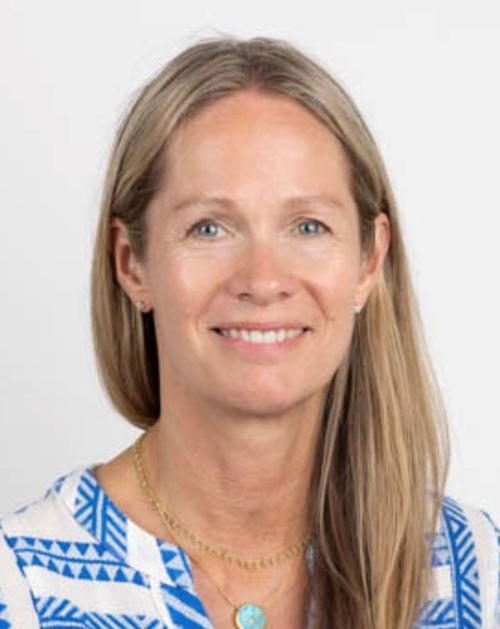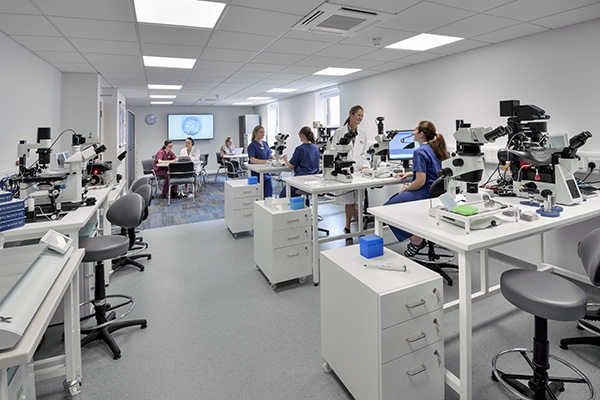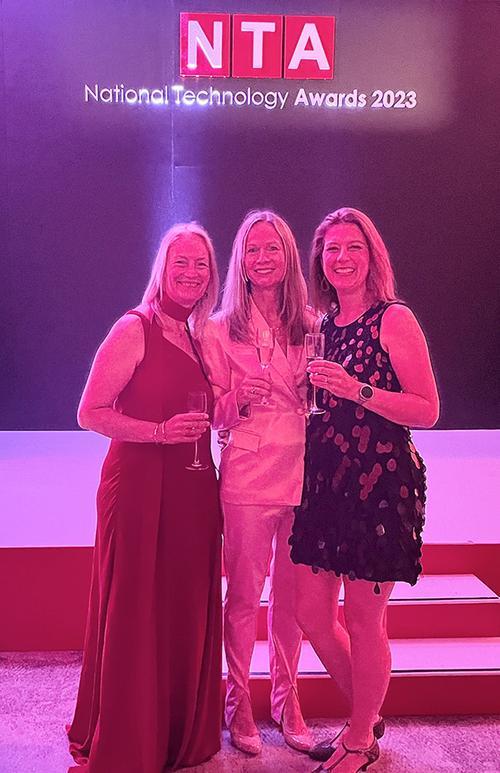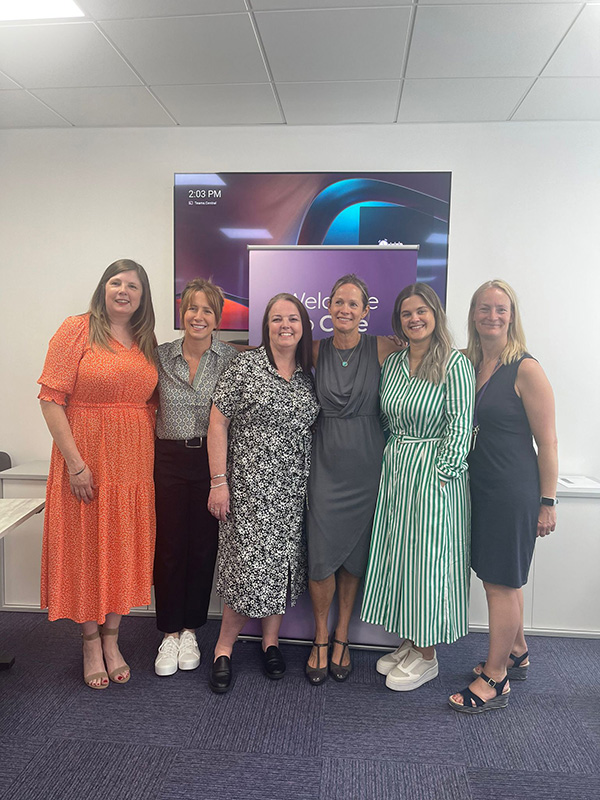Would you like to begin by introducing yourself? What is your role within Care Fertility and how long have you been there?
I am Chief Scientific Officer of the Care Fertility Group, which consists of 20 in vitro fertilisation (IVF) clinics with laboratories in the UK, Ireland, Spain and the USA. I am a consultant embryologist, a fellow of the Royal College of Pathologists and have published widely in clinical embryology.
I have a passion for the training and development of embryologists and andrologists and have recently established a dedicated practical training centre, which is now home to the UK’s first university-industry joint master’s degree in clinical embryology, a collaboration between Care Fertility and Liverpool John Moore’s University.
I am a developer, implementer and author of time-lapse algorithms to predict embryo ploidy and live birth, and our team has recently developed an artificial intelligence tool to support embryo selection across our clinics. This tool, called Caremaps-AI, won The National Technology Award in Healthcare 2023 and an RCPath Achievement Award.
I actively share my knowledge and experience, lecturing worldwide and participating on scientific advisory boards, including the scientific and clinical advances advisory committee for the UK’s regulator, the Human Fertilisation and Embryology Authority (HFEA). I am also part of the editorial boards for Human Reproduction and Reproductive BioMedicine Online. Currently, I’m Vice President of the International Society – Alpha Scientists in Reproductive Medicine.
My role as Professor of Biosciences and Chief Scientific Officer involves strategic leadership, driving standards and best practices across our network of clinics, and leading research and development.

Around 1 in 6 people struggle to conceive, and there are many reasons for this.
Can you explain more about what in vitro fertilisation (IVF) involves?
IVF, in the context of my work, is the process of creating human embryos in the laboratory for clinical treatment. Around 1 in 6 people struggle to conceive, and there are many reasons for this. IVF, with the patient’s own or donated gametes, can be used to produce embryos – either using conventional IVF (by mixing prepared eggs and sperm) or intracytoplasmic sperm injection (ICSI), where a single sperm is injected into a mature egg using microtools and micromanipulation. Controlled ovarian stimulation is used to collect several eggs for attempted fertilisation. Resulting embryos can be transferred, usually one at a time, or cryopreserved for future use.
Can you describe an average week for the team?
The embryologists and andrologists at Care Fertility spend most of their working weeks treating patients. They are responsible for semen analysis, identifying eggs in follicular fluid aspirates, mixing of the gametes by IVF or ICSI, assessment of fertilisation and embryo culture, embryo biopsy (in the case of preimplantation genetic testing for aneuploidy), embryo assessment, selection, transfer and cryopreservation.
Our scientists have contact with patients at various points in their fertility journey. They may be involved in information or education events and then often talk to the patients following oocyte recovery and sperm preparation to advise them on the quality of their gametes and their treatment as it proceeds. They will also consult with the patients regarding embryo selection and cryopreservation.

Since introducing time-lapse imaging of embryos, we have spent around a decade annotating and studying embryo development patterns.
Can you tell us some of the team’s main achievements, including your innovative research to improve the accuracy of embryo selection?
2023 has been a very productive year for Care Fertility scientists. Since introducing time-lapse imaging of embryos, we have spent around a decade annotating and studying embryo development patterns. We used the data to develop selection algorithms to predict which embryos had the most excellent chance of success. Around 2 years ago, we approached a company BJSS to collaborate with us to develop an artificial intelligence tool to automatically annotate these time-lapse videos and generate algorithm scores to predict birth.
This vast undertaking was successful, and our solution, called Caremaps-AI, is now live in all our UK and US clinics! Our scoring system ensures we not only select the best embryo the first time (as most patients have several), but also helps us advise our patients on their chance of success and supports decision-making regarding which embryos to transfer and cryopreserve. We were thrilled to receive a national technology and an RCPath achievement award for this work. It is a wonderful recognition of our team’s incredible dedication to improving patient treatments.

What are some challenges the team has faced?
The role of the embryologist is challenging. It requires manual dexterity, focus, precision and excellent microscopy skills. It can also be emotionally demanding as it can be hard when treatments are not successful, for example, when fertilisation fails or pregnancy tests are negative. The role requires a lot of monitoring of key performance indicators. We need to ensure that everything (like our incubation equipment) and everyone is performing optimally. Sometimes, the workload is unpredictable, or a particular case can be overly complex, and the hours can be extensive. We have a large, knowledgeable and talented team and being part of a cohesive network allows us to support each other if things get tough.
Digital technology has positively impacted the work of clinical embryologists and andrologists. It has brought improved precision and reproducibility compared with manual or paper-based methods.
Can you discuss the impact of digital technology on your line of work?
Digital technology has positively impacted the work of clinical embryologists and andrologists. It has brought improved precision and reproducibility compared with manual or paper-based methods. It has allowed us to collect and collate large-scale data from the pathology and IVF laboratories from our patient and their treatments. It has contributed to the continuous improvement in success rates over recent years.
Digitalisation also brings time and cost efficiencies, enabling more work to be completed in shorter times. In IVF, working quickly is essential as some steps of the process need to be performed at specific times. If embryos are manipulated or assessed, this usually happens outside the protective incubation environment and must be performed quickly. Live data entry, for example, is used in our laboratories. This saves time and removes the risk of transcription errors. We also have electronic witnessing systems that use RFID tags to ensure the process is fully traceable.

Do you have any advice for anyone looking to enter embryology or cellular pathology?
Reproductive science roles are becoming more popular, and entry is competitive. The most common route is via a Scientist Training Programme (STP) traineeship in reproductive science, which results in a master’s degree in clinical science (cellular sciences – reproductive science) or clinical science (andrology) as an STP trainee in andrology. There are also specific MSc Clinical Embryology, like ours, which can give an excellent foundation and the practical skills to begin a career in IVF.
I advise contacting your local IVF clinic and asking to spend a little time in the laboratory. It is a wonderful place where the magic happens, and you will know whether it may be right for you. You’ll need a broad range of attributes, but it helps if you have a passion for biology and pathology, excellent attention to detail, empathy and communication skills.

